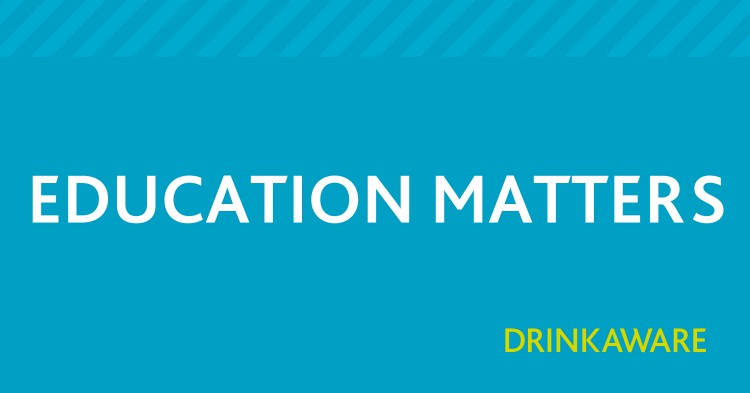As the national independent charity working to prevent and reduce alcohol misuse and delay the age of first drink, Drinkaware welcomes the Department of Children, Equality, Disability, Integration & Youth’s recently launched National Framework for children and young people’s participation in decision making.
The Framework’s aim – to support organisations to listen to children and young people and give them a voice in decision-making – is one that very much resonates with Drinkaware’s work and specifically our Junior Cycle Alcohol Education Programme (JC AEP).
The JC AEP reflects the National Framework’s four elements – space, voice, audience and influence. Core to this is a Whole School Approach that ensures the whole school community is aware of their role in listening to students’ voices to protect them to delay the age of first drink.
From its inception, the Programme was based on best practice in alcohol education (Morgan 2016) and informed by research amongst students themselves (B&A 2016), which found that:
- Over half said they felt they were limited in their knowledge relating to alcohol use
- 61% were interested in finding out more about How to stay alcohol free (64% => rural)
- 53% were interested in finding out more about Alternatives to alcohol for young people
- 50% were interested in finding out more about the Law and alcohol and young people
- 49% were interested in finding out more about Relationships, sex and alcohol
The JC AEP has since been continually adapted, based on further research carried out by Maynooth University (2017-2019) that again captured feedback from students, as well as teachers. The positive findings – for example, 82% thought the programme had helped them make informed choices and decisions in relation to alcohol consumption, see summary report – are testament to the value of the approach taken to the JCAEP’s development and to the importance placed on actively listening to and engaging with students.
Based on this feedback, new lessons are now included on: ‘Alcohol, staying safe, consent and risk-taking’; ‘Influences’ including social media and advertising; and ‘Coping’ incorporating diversity and inclusion, acceptance of difference and self-acceptance. In addition, three new video clips which capture the voices of Irish students and their views on alcohol, including risks and effects/ emotional wellbeing and peer pressure have also been included in year one of the programme.
Martha Sweeney Education Manager for Drinkaware commented:
It is essential that children and young people express their views on issues that affect them, and equally important that parents, educators and policy makers listen to these views so that they feel supported and have a sense of belonging, which enables them to build lifelong skills and become independent. But, listening requires that adults are open to hearing the young people’s views, in a non-judgmental way. By adults listening in a non-judgmental way, we model active listening skills and enable young people and children to listen to us and each other.
That is why the JC AEP requires compulsory “real-time” training of teachers so that when they are delivering the programme, they are receptive to lots of views from students and encourage safe discussion. As I can only teach what I myself have learned, the training engages teachers by using experiential methodologies which enable their voices (including attitudes and beliefs) to be heard and which they will be facilitating back in the classroom. The JC Alcohol Education Programme is specifically designed to empower young people to harness protective factors including social and emotional competence, coping skills and healthy decision-making. Having their voices heard is essential to skills development. As adults, we all need to be cognisant of the role of listening in providing a safe, secure and welcoming environment for the children and young people in our lives.
Drinkaware’s JC AEP is specifically designed to empower young people to harness protective factors including social and emotional competence, coping skills and healthy decision-making. Having their voices heard is essential to the development of these key life skills. For more information on Drinkaware’s Alcohol Education Programmes email Martha Sweeney.


